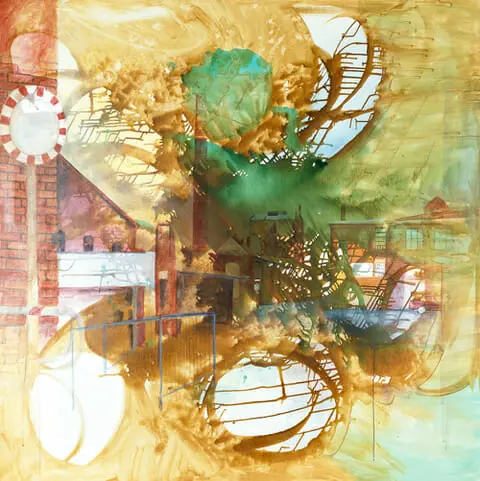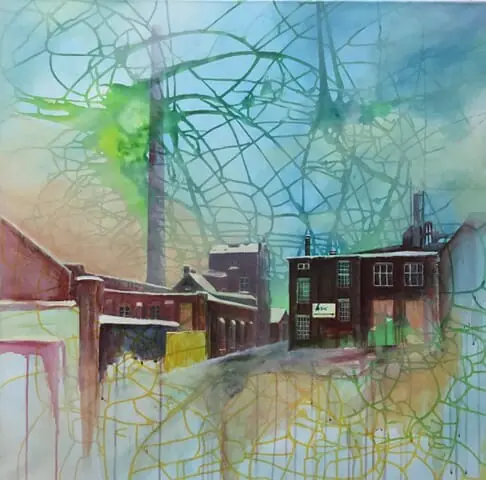The feminist movement has won many rights for women, and nowadays women play a greater role in society. In the process, everything feminine is seen in an unquestioningly positive light. However, there is a dark side that has not been discussed yet. Men are coming under increasing pressure. Emotional abuse and withdrawal of love, scheming and female ego are discussed here by a woman.
In times of gender and sex, the question of the differences in the relationship between men and women is not always freely discussed. However, Alexandra Schwarz-Schilling has described in detail the fact that there are polar opposites in men and women. She refers to various models, including those of indigenous peoples.
In men, the active pole is sexuality and the passive pole is the heart. For women, it is the other way around: the active pole is the heart and the passive pole is sexuality. Both sexes can usually handle their active poles well. If we look at the social situation, this is only logical. Men are proud of their masculinity, women are great communicators. However, as Schwarz-Schilling suggested, the real challenge is not so much to enhance the active poles, but rather to devote oneself to the passive poles and bring them into harmony with each other. Only then is it possible to personify the active pole to a healthy degree, since the two are intimately connected (cf. Schwarz-Schilling 2012). In my opinion, male sexuality and its dark sides have been extensively researched, especially by feminist movements. In fact, as Hollstein (2012) states, men are unilaterally held responsible.
The male becomes the “embodiment of evil” and all negative character traits are attributed to him. Instead of boys being allowed to fight, they are now supposed to communicate (in a feminine way). Masculine traits are consequently dismissed as bad.

In the following article, I would like to take a closer look at the active pole of women, the (loving) heart, and its dark sides, because – in contrast to the active pole of men – it is less visible or even invisible, and its dark sides are therefore more difficult to recognize. Gender studies, for example, recognized the invisible nature of women’s work early on and called for greater recognition of it.
In doing so, it overlooked the fact that not only the positive attributes of women’s work, such as communication skills, relationship skills, etc., need to be taken into account, but also its dark side, which manifests itself in scheming or emotional abuse. It should also be noted that the active pole of women, love, is generally seen in a positive light in society, while the active pole of men, sexuality, is still seen more negatively, perhaps neutrally, but certainly never as positively as love. This makes it all the more difficult to describe female love. Because love is generally viewed positively, there is a failure to recognize that emotional abuse is very similar to sexual abuse, though certainly not the same, and in itself requires different ways to heal from the abuse. But it is still abuse.
The starting point for the following considerations is that there is nothing “evil” per se, but that it is always a matter of the right or appropriate way to deal with the various aspects of being human. There is no formula for this, because it depends on the individual and cultural background and is expressed in the feelings of the individual.

Traditional society as the starting point
Since we don’t live in a vacuum, but are always embedded in a social and cultural environment, it makes sense to include this in the problem. Not only do we have an individual history, but we are also part of a collective history that affects us. Every woman has her own personal strengths and weaknesses and at the same time is connected to the collective consciousness of women. The same is true for men. The more we become aware of this, the more likely we are to overcome the aspects that hold us back. In traditional society there were clear roles for men and women. If we think about the original conditions of traditional marriage, we can learn something about our problems today. For even though we have broken with traditional stereotypes, we still have a long way to go before we reach our true individual potential.
In traditional society, the woman was responsible for feeling and the man for thinking. Women’s sexuality was largely suppressed in traditional patriarchal societies. A free-spirited woman was considered shameful. Entering marriage as a virgin was considered honorable; it was an important value in the marriage market. In my opinion, this is a significant indication of the negative connotation of women’s sexuality, which has been broken down today, but is still at work in the collective unconscious. Men, on the other hand, were not allowed to show feelings. The woman’s domain was inside the house, the man’s outside.
In traditional society, the woman was primarily defined by and dependent on the man. She was worth nothing on her own. The man was defined by his status and his role as the head of the family. He was also worth nothing on his own. In this context, male offspring were important. If a woman was unable to bear them, she could be “cast out. A woman’s value was thus defined both by her children and by her ability to bear them. In my opinion, these aspects still have a strong impact on women today. For some women, they still define their value largely in terms of others, i.e. their husbands or children, and put themselves in the background. In the case of “emancipated” women, this is reflected in the fact that they define themselves in terms of their own status, i.e. they take on the male role. They often see other women as competitors. It is not uncommon for this to be unconsciously about the favor of the (usually male) boss. Deep in the collective subconscious is the worry about one’s own worth. In my opinion, the basic problems of mutual striving for recognition have not been solved, but rather shifted and appear in different forms today.
I was surprised to discover an interesting phenomenon among women of my generation: Many of them do things because men think they are good. They do different things now, but the underlying problem is rarely overcome. The cure, in my opinion, lies in a self-determined life, which does not mean that one should no longer have children, love men, or own material goods. Rather, self-determination should come before heteronomy.
Expressions of negative female forces
For a long time I only knew stories about men cheating on women and “always wanting sex” – but hardly in a setting I knew, only as a general prejudice against men that I rarely encountered myself. So I wonder if it is a prejudice that only seems that way because the woman’s role and actions have never been considered. Over the past few years, I have come across a phenomenon that has concerned me greatly. It is the way women deal with their ability to give birth. I know some men who would like to have access to their child, but are denied access by the mother, sometimes for no apparent reason. An emotional dependency situation is created, usually orchestrated by the woman. The woman denies contact, and even when the man is entitled to it, she makes it difficult to the point of unbearable. For example, he tries to reach his child by phone. She never calls back. He has to constantly try to call his child just to talk to them. So when the father wants to see his child, he has to make a considerable effort, and it is difficult to plan a normal life. “Come over, take the kids now or not at all.” The men are supposed to be at the door immediately. These men I know would love to fulfill their role as fathers, to take care of their child, but they are not allowed to. Even by law, women with children are usually given preferential treatment. In the women’s circle of acquaintances, all kinds of tall tales are told about these men, but since men are generally seen as “evil”, these stories are often believed. So the woman uses her childbearing ability (mostly unconsciously, of course) to gain attention and power. In this way, she does not have to deal with herself and her hurts, her true desires and needs.1[1] In addition, she uses a third being, her child.2[2]
Traditional society reinforced this unhealthy, one-sided polarity by forbidding men to feel and suppressing women’s sexuality.
This article is translated from the German Original by Lynn Taylor, German Version: “Die dunkle Seite der Liebe”, Part II you can find here.
[1] In many spiritual circles it is said that needs are bad, that you must not have them, or that you need them to progress spiritually. I do not believe this. I believe that everyone has needs, but there are healthy and unhealthy needs, real and imagined. An interesting book on this is Herbert Marcuse: One-Dimensional Man. Studies in the Ideology of the Advanced Industrial Society. Frankfurt am Main 1967, which distinguishes between real and imagined needs. The point is to find out which needs are healthy or even necessary for life and which are not. At the same time, needs are not static, but are subject to a certain dynamic. Therefore, everyone should check from time to time which needs are still valid for him or her.
[2] I would like to point out here that of course a man who is firmly anchored in his feminine mind can also play emotional dependency games. Just as a woman can sexually abuse a man. In this article, which is the first approach to understanding this complex spectrum of emotions, I am focusing only on the most obvious manifestation of the “feminine shadow” in women. At a certain level of consciousness, women also see men as objects to be used to satisfy their needs. They talk about the size and shape of certain parts of the body. The present consciousness is a male consciousness in its pathological form (as opposed to the healthy, formative male consciousness, which I cannot go into here). All women are currently living in the male consciousness, the female consciousness is operating from the shadow space. Therefore, it is necessary to solve the underlying problems, instead of creating equality through egalitarianism.
[3] »Prefering to be poor, but happy” Anja Reich and Katharina Sperber in conversation with psychotherapist Maaz about narcissism. 07/20/2012 http://www.berliner-zeitung.de/magazin/psychothera- Peut-maaz-about-narcissism-“Lieber-arm-und-gluecklich-sein-“,10809156,16663138.html
External Resources
The Dark Side of Love
The Dark Side of believing in True Love
CUPID AND PSYCHE: A LOVE STORY WITH A DARK SIDE
